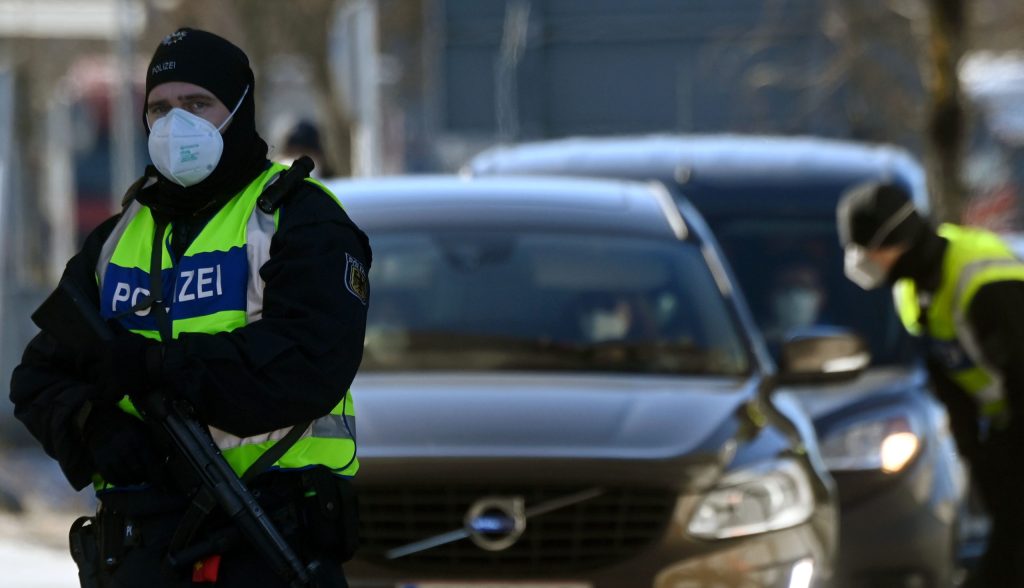On Sunday, Germany halted most travel for those moving between the country and its neighboring Czech Republic and Austria. After the South African variant was found in Austria and the British variant was detected in the Czech Republic, Germany designated these regions as ‘virus mutation areas’ and announced the measures on its east and southern borders on Thursday.
Initially, the German government wanted to avoid any new border controls after briefly bringing in restrictions last year. However, the fear of aggressive variants and their threat to the end of lockdown in mid-March has exceeded any concerns over the negative fallout from border controls.
The European Commission, by contrast, has requested an easing to Germany’s new border controls. ‘We urge Germany to implement these measures fully in line with the Council recommendations,’ a Commission spokesperson said Friday, adding that the Commission expected EU countries to follow a previously agreed common approach to travel restrictions and to avoid border closures and blanket travel bans. In other words, the EU wants to preserve the integrity of the Schengen area in the face of a reluctant member state. Berlin, however, seems to have different priorities.
‘The Commission should support us and not put spokes in our wheels with cheap advice,’ German interior minister Horst Seehofer told Bild. He also delivered a barbed criticism of Commission president Ursula von der Leyen and health commissioner Stella Kyriakides for their handling of the vaccine rollout across the continent, adding: ‘The Commission has made enough mistakes when ordering vaccines in the last few months,’ he said.
Meanwhile, a Czech movement called Chcipl Pes, which has been fighting against any COVID restrictions in the country, demanded retaliatory actions against Germany in response to the border closures. Andrej Babiš’s government, however, has so far resisted these calls, instead announcing that the nationwide emergency would be extended by 14 days. The desire for retaliation is at least understandable, but perhaps not wholly justifiable given the Czech Republic is a hotbed of central European COVID cases.
Meanwhile, more than 20,000 Czech workers pass the border every day to work on the German side. Hence, many Czechs hurried to Germany on Saturday. ‘I must cross the border before midnight,’ professional driver Ludvik Boucek told AFP on Saturday afternoon. ‘I’m glad the company dispatcher told me about the closure. I hadn’t heard anything about it,’ said Boucek, who is headed for Britain.
Around 1,000 German police officers were then mobilized on Sunday to ensure the new border controls. The state-owned rail firm Deutsche Bahn suspended services to and from the affected areas. Only a handful of exceptions are allowed to enter Germany from these countries, including returning Germans and essential workers such as doctors. Even those allowed to cross the restricted border ‘are likely to be turned away’ if they can’t provide proof of a negative COVID-19 test, warned Bavaria’s state premier Markus Söder.
And it seems these border closures might not be Germany’s last act. Controls could also soon be installed at the border with the Moselle region in eastern France, where the spread of coronavirus variants has been particularly active. The EU’s desire to control the situation — managing the Europe-wide response from Brussels — is increasingly being repudiated by its member states. When even countries like Germany are starting to ignore Brussels’s diktats, the likes of von der Leyen should be concerned.
This article was originally published on The Spectator’s UK website.


















